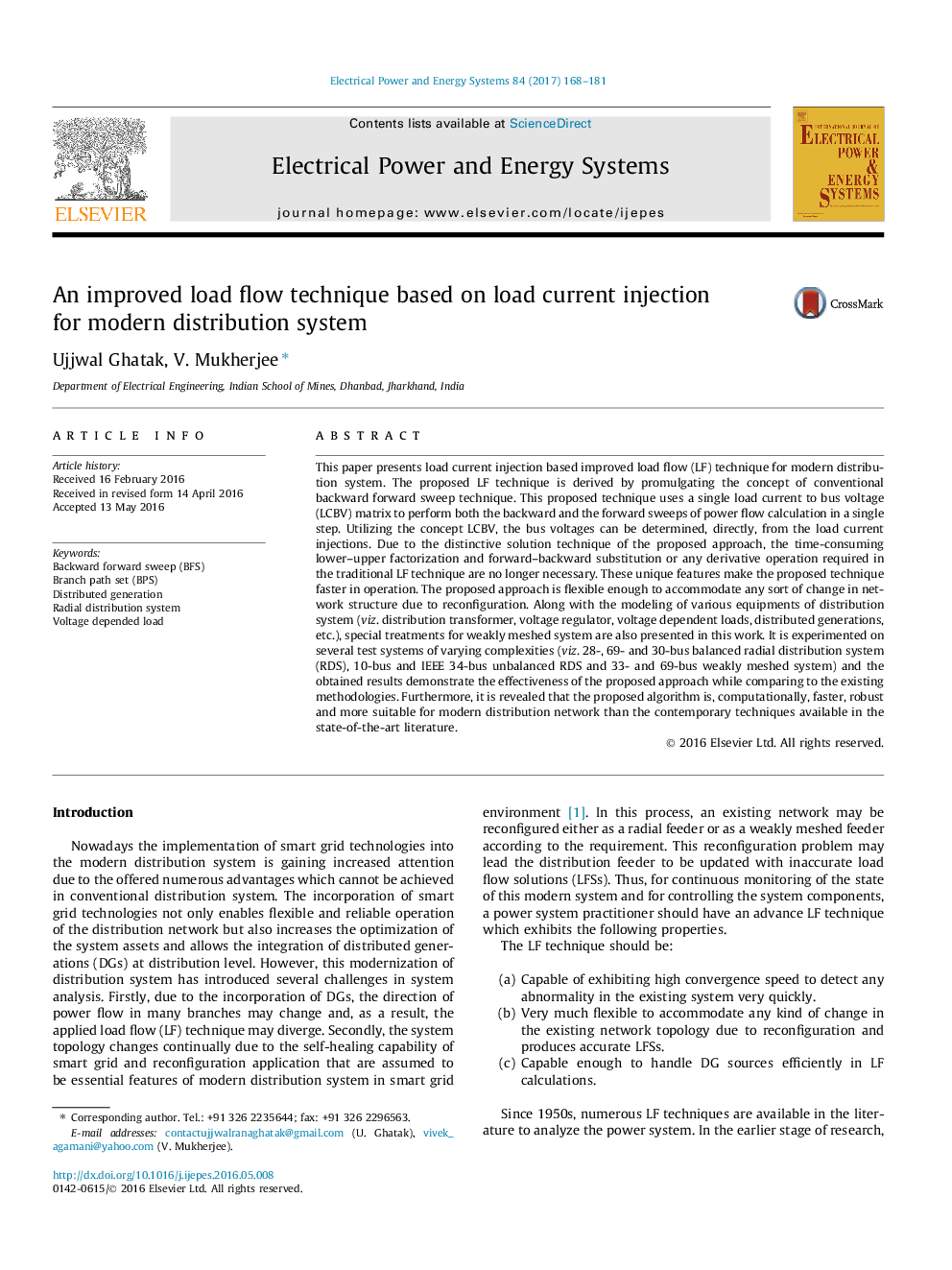ترجمه فارسی عنوان مقاله
یک روش جریان بهبود یافته بر اساس تزریق جریان بار برای سیستم توزیع مدرن
عنوان انگلیسی
An improved load flow technique based on load current injection for modern distribution system
| کد مقاله | سال انتشار | تعداد صفحات مقاله انگلیسی |
|---|---|---|
| 146853 | 2017 | 14 صفحه PDF |
منبع

Publisher : Elsevier - Science Direct (الزویر - ساینس دایرکت)
Journal : International Journal of Electrical Power & Energy Systems, Volume 84, January 2017, Pages 168-181

